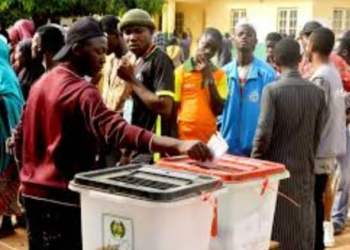Nigeria’s Nationally Determined Contributions (NDC) commitments, the Energy Transition Plan (ETP) and the revised climate change Act advocate ambitious measures for increasing renewables and transitioning to low-carbon energy sources.
The carbon neutrality roadmap envisions a complete transformation of Nigeria’s energy sector. It would require achieving some unprecedented targets, such as adding 5GW of solar capacity every year, electrifying 80 per cent of the transport fleet and converting over 80 per cent of the population to zero emissions cookstoves.
The scale of financing required to achieve these targets is truly unprecedented. Some estimates suggest that Nigeria will need $410bn more than business-as-usual spending over the next 30 years.
On Wednesday, 25 May 2022, The Electricity Hub, an electricity-focused media organisation in collaboration with the World Bank, organised hosted its 69th monthly Power Dialogue to discuss the Federal Government’s climate action targets and ambitions – including the challenges facing the low-carbon, climate-resilient transition across various sectors.
The panel discussants included Inga Stefanowicz, Head of Section, Green and Digital Economy Section, EU Delegation to Nigeria and ECOWAS; Zakari Aliyu, Managing Partner, Business Process Solutions Consult Ltd., the local partner of Nova Scotia Power Development Limited (NSPDL); Oluwagbemisola Akinsipe, Research and Communications Associate, at Nigeria’s Energy Transition Office (ETO); and Chinma George, Chief Executive Officer of ClimFinance Consulting.
Analysing the climate targets set by the Federal Government and plans to reach net-zero by 2060, Oluwagbemisola noted that the Energy Transition Office is embarking on connecting the NDC targets to current ongoing projects through international finance aids.
These projects include the Solar Power Naija Project and the Clean Cooking Expansion Plan, which seek to provide clean energy sources for electrification and cooking purposes and reduce the country’s carbon emissions.
On Nigeria’s climate action plans, Oluwagbemisola highlighted that most solutions needed to reach net-zero are not cost-effective. Therefore, there is a need for the government to implement policies that will attract private sector players to invest in climate-friendly solutions to attain its target.
On her part, Inga Stefanowicz noted that the EU is positioned to assist Nigeria in achieving its climate targets. She pointed out that the Union has collaborated with the Office of the Vice President to assist in some studies related to rolling out the Clean Cooking Expansion programme.
She, however, noted that the EU’s ban on financing fossil fuel projects is stringent. It has divested its funding into renewable energy development and kickstarted the commercialisation of renewable energy projects in Nigeria.
She added that about €200 million had been disbursed as grants to support the development of off-grid solar projects. Highlighting the EU’s latest program, Inga noted that the EU intends to support Nigeria’s energy diversification plans through engagement with stakeholders.
The EU has already started co-funding opportunities with the German government. Inga further stated that the EU is looking towards capacity development and training for small energy development businesses to make them attractive for foreign and local investments.
Addressing the possibility of improving decarbonising the energy sector via renewable energy, Zakari Aliyu noted that utility-scale solar projects could improve energy access exponentially. He said about 14 solar energy companies had signed power purchase agreements (PPA) with the federal government on utility solar investments. However, while this project has significant electrification potential, it has suffered setbacks arising from exchange rate, payment, and sovereign guarantees challenges.
In addition, the sector lacks sector maturity as it is not ready for bilateral trading. Hence, there is a need for the government to provide the financiers with guarantees of return on investments for utility-scale solar projects. He also noted that the federal government, through the office of the special adviser on infrastructure, in collaboration with the ministries of power and finance, intend to create a blended financing provision for solar independent power plants (IPPS). This agreement will see financial institutions such as InfraCorp, Africa Finance Corporation (AFC), and local banks provide naira lending opportunities to enable the IPPS to access adequate repayable capital for projects in the short term.
While also addressing the EU’s plan to support Nigeria’s climate commitment targets, Inga noted that the EU plans to aid the agricultural value chain development.
Providing funding and capacity development in climate-smart agriculture will improve green productivity and ensure the utilisation of eco-friendly energy storage solutions. She added that the EU has just approved a ‘work in budget’ program for Nigeria of about €500 million.
Also, the EU intends to provide €180 million over the next few years for clean energy, climate-smart agricultural development, and capacity development to scale green and digital economy.
Development partners such as the European Union and the World Bank provide a catalytic drive to open up investment opportunities for clean energy development and a just energy transition for Nigeria.
However, the government also needs to commit to and implement policies that will enable private sector participation as they are essential to meeting Nigeria’s climate targets.







